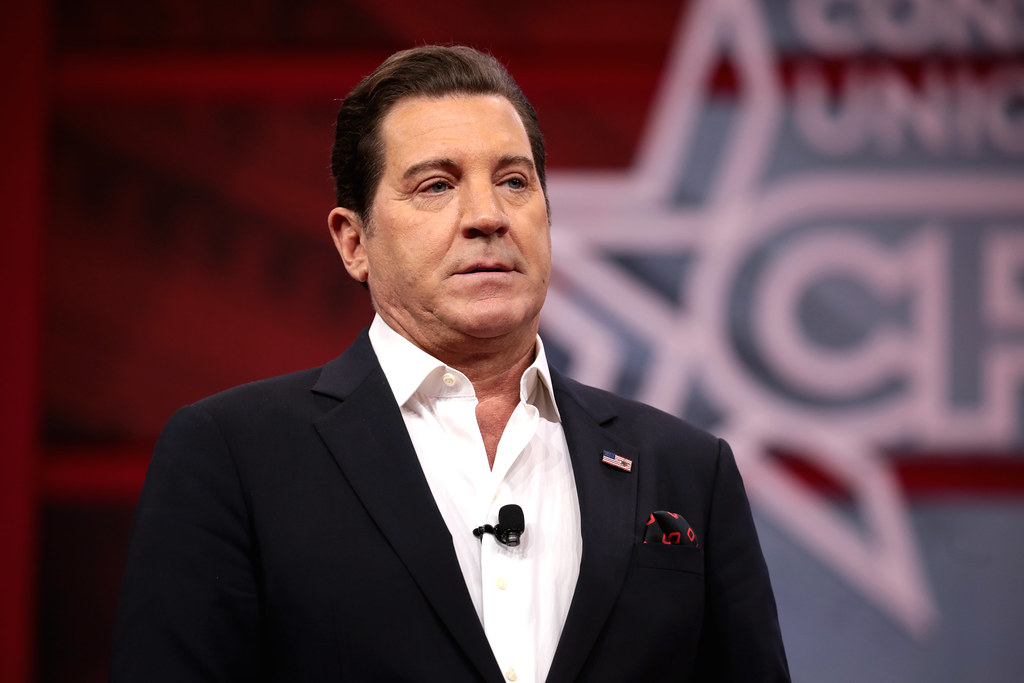Key Takeaways
- Eric Bolling sharply criticized Democrats for their remarks about Charlie Kirk.
- Rep. Jasmine Crockett declined to support a resolution honoring Charlie Kirk’s memory.
- Bolling accused Democrats of spreading lies about Charlie Kirk that lead to violence.
- The debate centers on a proposal to install a statue of Charlie Kirk in the Capitol.
In a heated segment, Eric Bolling condemned remarks by some Democrats targeting Charlie Kirk. Bolling spoke out on his show after Rep. Jasmine Crockett refused to back a resolution for a Capitol statue honoring Charlie Kirk. His words come as lawmakers argue over memorializing the slain conservative activist.
Why the Charlie Kirk Resolution Matters
Lawmakers introduced a resolution to honor Charlie Kirk with a statue in the Capitol’s statuary hall. Charlie Kirk founded a major conservative organization and inspired many young activists. Thus, supporters believe he deserves recognition for his impact on politics. However, opponents like Rep. Jasmine Crockett cite past comments about race and people of color to block the tribute. Consequently, the resolution has become a flashpoint for larger culture wars.
Eric Bolling’s Response to Democrats
On his show, Eric Bolling called the Democratic criticism of Charlie Kirk “the lowest form of life.” He labeled comments by Rep. Jasmine Crockett “a disgusting smear” on the day of Charlie Kirk’s funeral. Moreover, Bolling slammed fellow Democrats—such as Ilhan Omar, Alexandria Ocasio-Cortez, and Hakeem Jeffries—for voting against the resolution. He accused them of spreading falsehoods that endanger voices like Charlie Kirk’s.
Bolling argued that networks tolerate “lies that get people killed,” yet they denounce factual accounts of leftist violence. He stated, “Spreading lies about Charlie Kirk is acceptable, but parlaying facts is divisive.” By contrasting these standards, Bolling said Democrats show their hypocrisy. He insisted that honoring Charlie Kirk with a statue is not only fitting, but overdue.
Reactions from Republicans and Democrats
Unsurprisingly, many Republicans rallied behind Eric Bolling’s defense of Charlie Kirk. They praised his fierce language and called on Democrats to drop their objections. Meanwhile, Democrats defended their vote against the resolution, with some pointing to Charlie Kirk’s past statements on race. They argued that honoring him with a statue sends the wrong message.
Some moderates attempted to bridge the gap. They suggested amending the resolution to include a broader statement on unity. However, hardliners on both sides rejected compromise. Consequently, the debate over Charlie Kirk’s statue turned into a proxy war over free speech and cancel culture.
The Broader Impact on Political Discourse
This clash over Charlie Kirk highlights how memorials can become battlegrounds. On one hand, supporters view statues as lasting honors for public figures. On the other, opponents see them as symbols that must meet moral standards. Therefore, the fight over Charlie Kirk’s statue has drawn national attention to how historical memory gets shaped by politics.
Moreover, the controversy reveals deeper rifts between parties. Republicans argue Democrats unfairly target conservative voices like Charlie Kirk. Conversely, Democrats claim accountability for past rhetoric is crucial. Thus, both sides use the debate to rally their bases ahead of upcoming elections.
What Comes Next for Charlie Kirk’s Legacy
At present, the resolution to honor Charlie Kirk remains stalled in committee. Supporters must gather enough bipartisan support before it can reach the House floor. Meanwhile, opponents may introduce amendments or alternative measures to reshape the narrative.
Nevertheless, the furor over Charlie Kirk has already boosted his posthumous prominence. His speeches and writings receive renewed attention online. As a result, young conservatives see his legacy as a rallying point for future activism.
Yet, the controversy also risks deepening political animosity. If neither side budges, the dispute may fuel further gridlock in Congress. On the other hand, a compromise could set a precedent for how the Capitol honors divisive figures.
In the end, Charlie Kirk’s memory hangs in the balance of partisan negotiations. His supporters remain determined to secure a statue, while critics insist on stricter standards. Consequently, the outcome will shape how Washington balances tribute with accountability.
Navigating the Debate Around Statues and Memory
Beyond Charlie Kirk, debates over statues and public honors have surged nationwide. From Confederate monuments to modern leaders, Americans grapple with who deserves commemoration. Transition words like however, therefore, and meanwhile help guide readers through complex arguments. In this case, Charlie Kirk’s resolution embodies larger questions about history, ideology, and public space.
Furthermore, social media plays a key role. Advocates for Charlie Kirk use hashtags and online campaigns to rally support. Opponents share clips of past remarks to illustrate their concerns. As a result, real-world political maneuvering now intersects with digital activism.
Whatever happens next, the saga of Charlie Kirk’s proposed statue will offer lessons. It will reveal how parties negotiate over memory, how media personalities shape discourse, and how activists mobilize behind causes.
Frequently Asked Questions
Why did Democrats vote against honoring Charlie Kirk?
Many Democrats cited past comments by Charlie Kirk on race and people of color. They argued those remarks made him unfit for a Capitol statue.
Who is leading the effort to honor Charlie Kirk with a statue?
Republican lawmakers introduced the resolution, backed by conservative activists and Eric Bolling’s public defense.
What did Eric Bolling say about Charlie Kirk critics?
Bolling called Democratic critics “the lowest form of life” and accused them of spreading lies about Charlie Kirk.
When might the resolution for Charlie Kirk advance?
The bill must clear a committee vote before reaching the full House. Its timeline depends on bipartisan support.
